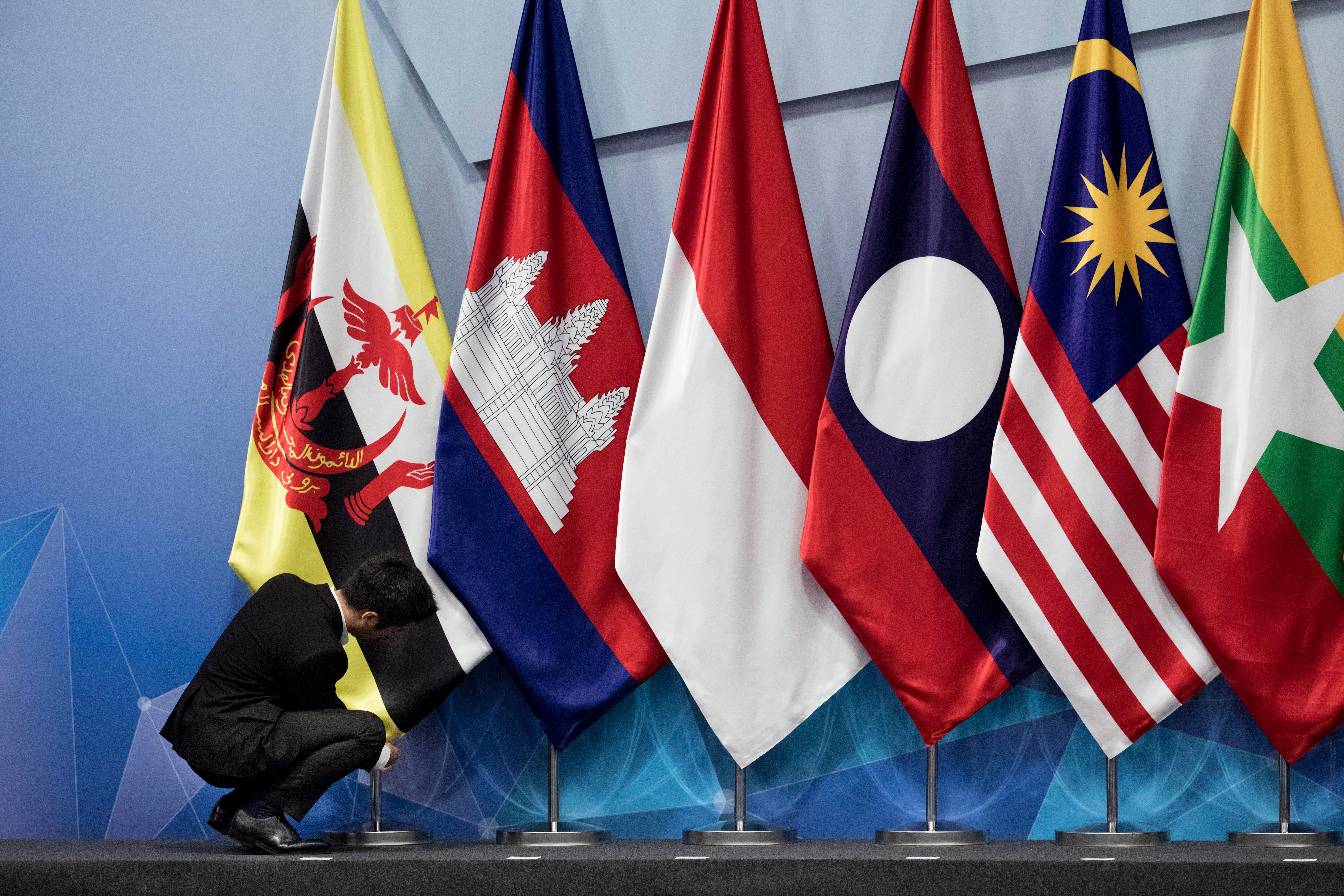China hosts Southeast Asian ministers as it competes with US
China is hosting foreign ministers from 10 Southeast Asian nations amid heightened competition between Beijing and Washington for influence in the region

Your support helps us to tell the story
From reproductive rights to climate change to Big Tech, The Independent is on the ground when the story is developing. Whether it's investigating the financials of Elon Musk's pro-Trump PAC or producing our latest documentary, 'The A Word', which shines a light on the American women fighting for reproductive rights, we know how important it is to parse out the facts from the messaging.
At such a critical moment in US history, we need reporters on the ground. Your donation allows us to keep sending journalists to speak to both sides of the story.
The Independent is trusted by Americans across the entire political spectrum. And unlike many other quality news outlets, we choose not to lock Americans out of our reporting and analysis with paywalls. We believe quality journalism should be available to everyone, paid for by those who can afford it.
Your support makes all the difference.China is hosting foreign ministers from 10 Southeast Asian nations this week amid heightened competition between Beijing and Washington for influence in the region.
Chinese state media said the meeting Tuesday in the southwestern megacity of Chongqing will cover issues from restoring tourism and other economic exchanges battered by COVID-19, to more coordinated efforts in fighting the pandemic and the feasibility of creating a vaccine passport to allow freer travel among them.
Chinese Foreign Minister Wang Yi is also expected to meet separately with each of his counterparts on the sidelines of the conference.
Beijing has been building influence with the 10 countries that make up the Association of Southeast Asian Nations, despite frictions with some of them over rival territorial claims in South China Sea. The Philippines has complained repeatedly over the presence of Chinese boats moored at a reef that it claims and Malaysia last week protested over an intrusion by 16 Chinese military aircraft into its airspace, calling the incident a “serious threat to national sovereignty and flight safety.”
Chinese economic and diplomatic heft have helped override such concerns, however, while the bloc has been unable to form a unified stand in the face of opposition from Chinese allies within, primarily Cambodia.
“”Over the past three decades, China-ASEAN cooperation has grown in leaps and bounds, becoming the most successful and dynamic example of cooperation in the Asia-Pacific region," Chinese Foreign Ministry spokesperson Wang Wenbin said on Sunday in announcing the meeting.
“The fact that the two sides agreed to hold a face-to-face special foreign ministers’ meeting despite the ongoing grim COVID-19 situation reflects how countries attach great importance to and hold high expectations of China-ASEAN relations under the new circumstances," Wang said.
The U.S., which maintains an active naval presence in the South China Sea and strong relations with the region, has expressed concerns over China’s growing presence, particularly its impact on security and Beijing's political influence over fragile democracies.
In a meeting with Cambodian Prime Minister Hun Sen on Tuesday, U.S. Deputy Secretary of State Wendy Sherman focused on China’s construction of new facilities at Ream Naval Base and urged Cambodia’s leadership to maintain an independent and balanced foreign policy, “in the best interests of the Cambodian people.”
China, meanwhile, calls the U.S. naval presence the biggest threat to security in the region, particularly its insistence on sailing close to Chinese-held features in what are termed freedom of navigation operations.
Beijing also strongly objects to strengthened relations between the U.S. and Taiwan, the self-governing island claimed by China, which threatens to use military force to bring it under its control.
Washington sent a strong message of support on Sunday when three senators flew to Taipei on an Air Force transport plane to announce the U.S. will give Taiwan 750,000 doses of COVID-19 vaccine after the island complained that China is hindering its efforts to secure vaccines as it battles an outbreak.
Democratic Sen. Tammy Duckworth of Illinois, who made a three-hour stop in Taiwan with fellow Democrat Christopher Coons of Delaware and Republican Dan Sullivan of Alaska, said their visit underscores bipartisan U.S. backing for the democratic island.